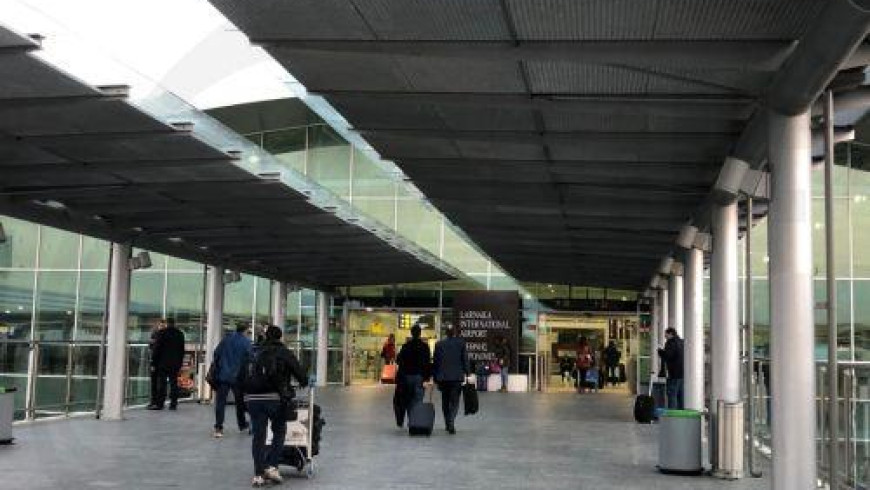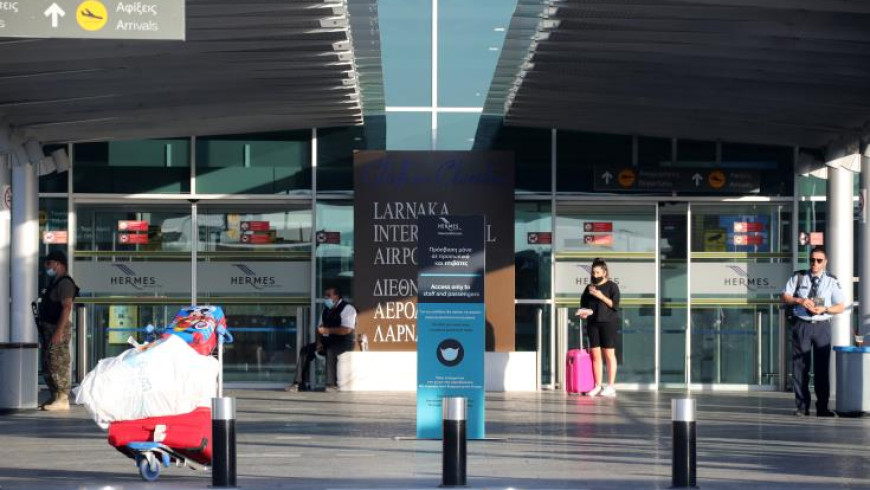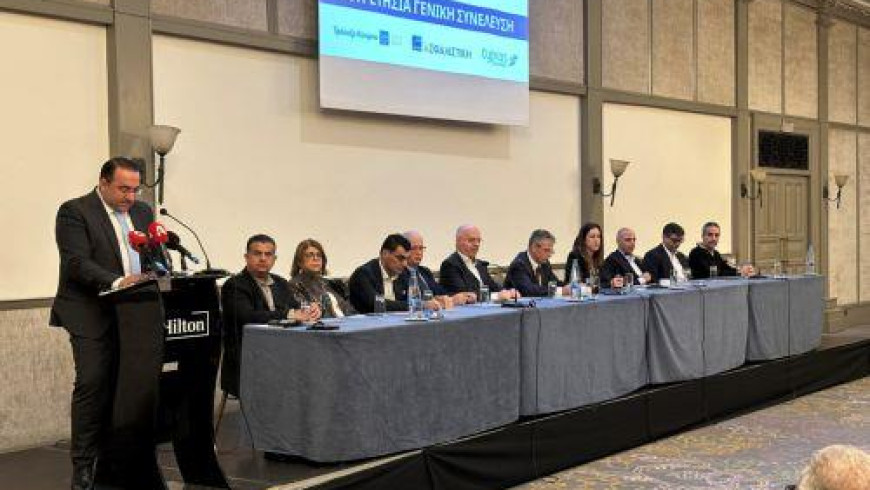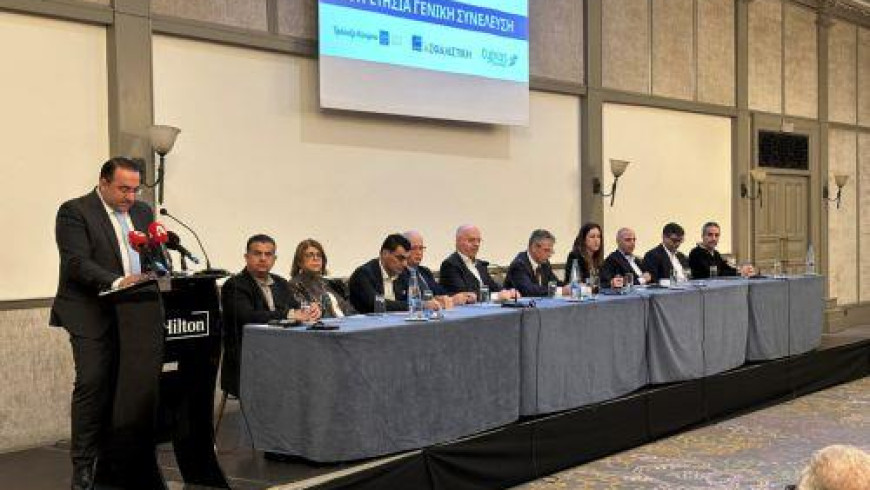
The importance of sustainability in shaping the future of the hospitality industry was pointed out by Anish Kanswal, Efficiency Manager at Stockholm's Quality Hotel Strawberry Arena in an interview with the Cyprus News Agency (CNA).
Quality Hotel Strawberry Arena, the largest hotel in Stockholm and part of the biggest hotel chain in the Nordic region, has set a high benchmark by embarking on an ambitious yet challenging journey towards achieving near-zero emissions, in alignment with the EU’s climate goals.
Kanswal visited Nicosia as part of the event “Sustainable Tourism for the Future,” hosted by the Swedish Embassy in Cyprus. The gathering brought together tourism industry stakeholders to discuss innovative green solutions. Kanswal shared insights into the hotel’s sustainability efforts, emphasizing its commitment to creating an environmentally friendly model that balances guest satisfaction with environmental responsibility.
"The hotels which are not sustainable will not be relevant," Kanswal told CNA, explaining that modern travelers increasingly demand eco-conscious options—from where they stay to what they eat. Kanswal highlighted that embracing sustainability is not only about environmental responsibility but also about staying competitive in a rapidly evolving market.
As he explained by implementing energy-efficient technologies, minimizing food waste through innovative systems, and eliminating single-use plastics, the hotel has integrated sustainability into daily operations.
"Our sustainability efforts stem from the visionary leadership of our owner, Kanswal said. " He sees the transition in the market, how the market is changing and how sustainability is important” he added.
Kanswal explained that when a business book with the hotel—particularly large companies—they often have sustainability frameworks that require them to work only with hotels committed to sustainable practices. “This creates a direct connection between our efforts and their goals”, he said.
Steps toward sustainability
While achieving net-zero emissions remains a long-term goal, Kanswal outlines several tangible actions.
The steps that the hotel has taken towards sustainability includes measures to conserve energy, minimize waste, and source renewable electricity.
As he said the hotel has replaced all halogen bulbs with LEDs, implemented a programmable ventilation system, and optimized kitchen operations to reduce energy spikes.
He explained that guest bathrooms are equipped with automatic three-minute water timers, reducing water waste significantly.
As far as food waste he said that unused buffet foods are sold into discounted breakfast bags. “We sell breakfast bags, but we don't sell it for a profit. We sell it just for the cost price”, he said, adding that it has become very popular that people come to their centrally located hotel to buy breakfast that is still fresh and they are getting it at a 70% discount.
Single-use plastics have been eliminated entirely within the hotel's operations. Waste is meticulously sorted to ensure recyclability, following Swedish waste management standards.
Educating staff and guests
Staff training is integral to the hotel's strategy. Kanswal said that the staff was trained to monitor sustainability practices and suggest improvements. Monthly meetings keep everyone aligned with the goals, he added.
“We do a staff meeting and I speak every month with them, about sustainability, what we have done in the past month, how are the numbers looking and what is the plan for the next month. Then I ask for their ideas”, he said.
However, he stressed that the hotel also educates guests through digital signage and QR codes, highlighting the impact of their stay on the environment. Kanswal said that sometimes, they still got a lot of questions from people, like, "Why do you have smaller plates?”
“It's a simple and valid question, but when we explain the reasoning with numbers, it makes sense. They tell them how much food they've been throwing away because people fill their plates and don’t eat it all”.
“With smaller plates, you take just what you need. The buffet is open, so you can always go back for more” he said.
Long term benefits
The Swedish Efficiency Manager explained that while sustainability efforts might seem costly initially, they bring long-term benefits. He gave as an example, installing a water-saving timer that involves an upfront cost, but it reduces water usage significantly.
As he said, over time, these sustainable investments not only save money but also enhance the hotel’s reputation. By allocating budgets to sustainability rather than solely marketing, he argued, you achieve financial, environmental, and branding benefits.
Lessons for Cyprus
The industry expert noted the importance of gradual change. He advised Cyprus hoteliers to start small rather than attempting drastic transformations, which could lead to failure. "Take small steps, they can lead to big changes," he suggested.
He recommended starting with simple changes, such as addressing food waste, reducing plastic usage, and conserving energy.
Citing a personal experience at a Cypriot hotel, he noted the lack of access to tap water and the reliance on plastic bottles. "In Sweden and other parts of Europe, you can drink tap water or refill your own bottle. Here, I had to buy plastic bottles. It’s not about the money, but the environmental impact," he explained.
However, he stressed that sustainability shouldn’t rely solely on individual hotels. "The local government and government agencies need to be involved," he said, stressing the importance of policy-level decisions to guide and enforce sustainable practices. Without such measures, he warned, many hotels might not adopt necessary changes.













 3287.99
3287.99 1275.09
1275.09
